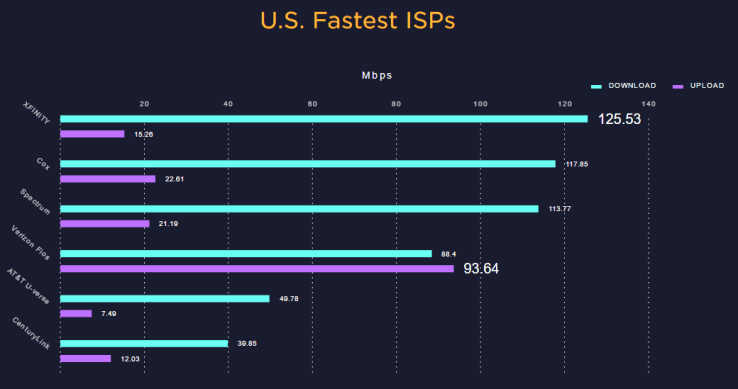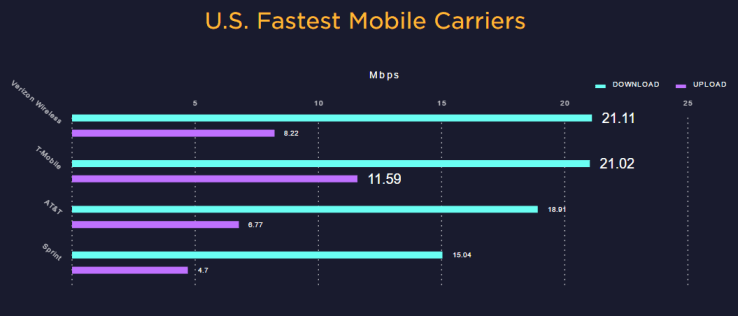Speedtest has released its mid-year broadband speeds report, and there’s actually quite a bit of good news in there. Speeds are steadily increasing despite machinations within the industry, and in fact the average in the U.S. just went north of 50 megabits for the first time ever.
That average, 54.97 megabits per second is 42 percent higher than the same period last year, and upload jumped even more — 18.88 is 51 percent higher year over year. This is all based on the 8 million or so daily tests conducted on Speedtest’s website and apps, by the way, so the data is pretty sound.
Comcast Xfinity took the honors for fastest speed on average, but its 125 megabits wasn’t that much higher than the competition: Cox with 118 and Spectrum with 114.
Does that last name fail to ring a bell? Spectrum is the new company formed by Charter, Time Warner Cable, and Bright House Networks when the first bought the other two earlier this year.
“Market consolidation by large ISPs doesn’t typically bode well for innovation and increased speeds,” Speedtest observes, although TWC and Bright House did see performance improvements in the last 6 months, so perhaps this will be an exception.
Fiber providers like Google and Verizon (which owns Aol, which owns TechCrunch, by the way) are continuing to roll out their networks, pushing services using traditional connections to provide competitive speeds — and, critically, bringing solid broadband to remote areas where it has been hard to come by for decades.
On mobile, Verizon and T-Mobile are tied for first place with 21 megabits and change download speed on average, though the latter beats the competition by a long shot with upload speeds averaging 11.59 megabits. Poor Sprint, though.
Speedtest notes that the mobile world has seen serious competition over the last couple years, with consumers the gainers as all the networks invest in their networks and push each other on prices.
It’s good stuff, but don’t lose track of the fact that our speeds still lag behind many other countries, and many companies exert ongoing strangleholds on cities or neighborhoods. Plenty of work to do!


